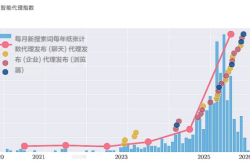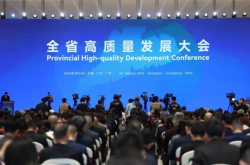How Will the Central Economic Work Conference Impact Your and My "Wallet"?
![]() 12/17 2024
12/17 2024
![]() 814
814

Original by You Dian Shu Digital Economy Studio
Author | You Shu
WeChat ID | yds_sh
As we approach the year 2025, aspirations abound: higher incomes, lower mortgage payments, more job opportunities, cheaper prices... These are the desires of the people and the direction of government policy. The concerns of ordinary citizens are also the priorities of the central government for 2025. The recent Central Economic Work Conference held in Beijing has set the tone for next year's economic policies, and the signals released at the conference will directly affect our daily economic lives.

Lower Repayments, Better Employment
The Central Economic Work Conference proposed implementing more proactive macroeconomic policies for the coming year. The phrase "proactive and effective" suggests that macro-level policy efforts will benefit market entities such as households and businesses at the micro level. This includes further reductions in financing thresholds and costs, more trade-in and consumption subsidy policies in the consumer sector, and more robust and comprehensive housing, healthcare, and pension policies for people's livelihoods.
Adopting a more proactive fiscal policy and a moderately easy monetary policy marks a significant shift in tone compared to previous years. For instance, China's monetary policy, which has historically emphasized "prudence," has now been adjusted to "moderately easy." This means that there will be further reductions in reserve requirement ratios and interest rates in 2025. For individual consumers, this translates to lower interest rates on various consumer loans, such as mortgages and car loans, resulting in reduced interest payments.
Take the year 2024, which is about to conclude, as an example. The Loan Prime Rate (LPR) has fallen three times, with the one-year LPR decreasing by 35 basis points and the over-five-year LPR decreasing by 60 basis points. This has driven actual loan interest rates down further, with residential mortgage interest rates reaching an all-time low.
Even with lower loan interest rates, stable income is essential for repayments. Therefore, employment remains the most fundamental aspect of people's livelihoods. In recent years, key employment groups, such as youth, migrant workers, low-income families, and the unemployed, have faced various challenges in the job market. The more pressure there is on economic development, the more critical employment becomes.
From stabilizing employment and increasing income to providing a safety net and strengthening the social security system, to promoting high-quality population development, various regions and departments have continuously introduced policy measures that address urgent livelihood issues and align with public sentiment. For instance, recently issued "Opinions on Further Improving Services for Returned Overseas Talents" integrate returned overseas talents into the country's unified employment policy system, promoting high-quality and full employment for this group. Additionally, some cities have released a "mother's job" employment catalog, offering flexible, job-elastic, high-quality employment opportunities suitable for stay-at-home mothers.
The Central Economic Work Conference emphasized increasing efforts to safeguard and improve people's livelihoods, enhancing people's sense of gain, happiness, and security. It proposed implementing employment support plans in key areas, industries, urban and rural grassroots levels, and small, medium, and micro enterprises to promote employment among key groups. For example, focusing on promoting infrastructure construction in transportation, energy, and other fields will directly drive employment in related industries, especially during uncertain economic times, creating more job opportunities for the general public.
With the further implementation of various measures to stabilize employment, more job opportunities can be created. Additionally, the continuous development of modern service industries and new forms of employment will also become important areas for job creation.

More Consumption, More Practical Discounts
The fundamental logic of a market economy is that one person's consumption is another person's income, and the ultimate purpose of production is to satisfy consumer demand. Currently, insufficient domestic demand, especially among residents, is the crux of the economy.
Why is it necessary to expand domestic demand? Firstly, China has a vast population and a massive market. For most enterprises, the domestic market is sufficient to support their development, and there is still considerable untapped potential within it. Secondly, in the context of economic globalization, the international market has been fraught with uncertainties in recent years. Therefore, it is imperative to fully utilize the vast domestic market and expand domestic demand to maximize the protection of our own interests.
Consumption is essential for expanding domestic demand; without it, there is no market. The main force of consumption is the general public. The state needs to ensure that people have both the means and the courage to spend.
Therefore, the Central Economic Work Conference clearly stated that one of the key tasks for 2025 is to vigorously boost consumption. The proposed measures include appropriately increasing basic pensions for retirees and urban and rural residents, raising financial subsidies for urban and rural residents' medical insurance, optimizing the structure of fiscal expenditures, improving fund use efficiency, focusing on benefiting people's livelihoods, promoting consumption, and enhancing future growth potential while ensuring a solid foundation for the "three guarantees" at the grassroots level. Additionally, timely reductions in reserve requirement ratios and interest rates will maintain ample liquidity, stabilizing residents' income expectations and thereby promoting consumption.
The mere aspect of boosting residents' consumption demonstrates that the Chinese economy still has tremendous potential. Data shows that China's household consumption rate is approximately 37% to 39%. To reach the global average, it still needs to increase by about 20 percentage points, implying significant growth potential. In the first ten months of 2024, household deposits nationwide increased by 11.28 trillion yuan. Even if one-tenth of this amount is used for consumption, it would mean an additional final consumption of over one trillion yuan. Coupled with the multiplier effect of consumption, this would generate even greater growth.
Looking back at 2024, boosting consumption has been a focus of macroeconomic policy efforts. China has introduced multiple policies to continuously promote consumption. Earlier this year, the State Council issued the "Action Plan for Promoting Large-Scale Equipment Upgrades and Trade-Ins of Consumer Goods." Nearly 300 implementation details have been issued by various parties. Just a few days ago, as the year-end consumption peak season approaches, many places have launched a new round of consumption vouchers to boost consumer confidence.
The trade-in policy for consumer goods has achieved good results this year and is expected to continue, expand, and increase in capacity. Therefore, if you and your family plan to purchase or replace cars, home appliances, etc., you are likely to enjoy more discounts and save more money. Building on this year's comprehensive support for home appliances, automobiles, and furniture, next year is also expected to fully support consumer electronics, small appliances, furniture, building materials, and other fields.

Stable Housing Prices, Profitable Investments
In recent years, the downturn in the real estate and stock markets has adversely affected residents' balance sheets, inhibiting their willingness to consume. The Central Economic Work Conference clearly proposed to "stabilize the real estate and stock markets," aiming to stabilize residents' consumption expectations by stabilizing their wealth base.
The real estate market is closely linked to people's livelihoods and residents' existing wealth. Following the meeting of the Political Bureau of the CPC Central Committee on September 26, 2024, multiple departments implemented a combination of policies to promote the steady and healthy development of the real estate market. Various regions, especially first-tier cities, have adjusted and optimized relevant real estate market policies to promote market recovery.
This Central Economic Work Conference has sent a more positive signal, continuing to push for the real estate market to stabilize and rebound. It emphasizes intensifying efforts to implement the renovation of urban villages and dilapidated houses, fully unleashing the potential demand for rigid and improved housing. Additionally, it advocates reasonably controlling the supply of new real estate land, revitalizing existing land and commercial office space, and promoting the disposal of existing commercial housing. The conference also promotes the construction of a new model for real estate development and the orderly establishment of related basic systems.
For individual investors, the word "stability" suggests that there will not be significant fluctuations in the capital market next year, and the public should seize structural opportunities. Structural opportunities refer to localized and differentiated investment opportunities that arise in specific industries, sectors, or asset classes when the overall market environment is not fully prosperous or in decline.
Specifically, with the conference proposing to vigorously boost consumption and implement special actions to promote the development of various types of consumption, sub-sectors such as cultural tourism, first-launch economics, ice and snow economics, and the silver economy will thrive. Ordinary people involved in tourism services, the development of special cultural products, elderly care, and health product supply in related industries may have more business opportunities and profit margins.
With the acceleration of the green transformation, job demand and entrepreneurial opportunities related to new energy and environmental protection industries will continue to increase. Whether participating in new energy project construction, environmental protection technology research and development and promotion, or engaging in new energy vehicle sales and after-sales services, it may become a way for ordinary people to achieve economic growth. For example, learning new energy vehicle maintenance technology can lead to stable and considerable income as the number of new energy vehicles continues to rise.
In the field of technology, with the emphasis on technological innovation and the cultivation of new productive forces, cutting-edge technology fields such as artificial intelligence, big data, and biotechnology will be vigorously developed. Ordinary people with relevant technical backgrounds or willing to devote themselves to learning and entrepreneurship in these fields are expected to share in the wave of emerging technology industries, such as participating in artificial intelligence algorithm development, big data analysis and application projects, and obtaining high returns.
In the process of agricultural modernization, with increased support for the agricultural industry, there are also potential opportunities in the deep processing of agricultural products and the application of smart agriculture technology. For example, developing e-commerce sales of specialty agricultural products and promoting high-quality agricultural products to a broader market can not only drive rural economic development but also bring considerable economic benefits to practitioners.

Postscript...
From the above analysis, it is evident that the impact of the Central Economic Work Conference on people's lives is multifaceted. Boosting domestic demand and improving people's consumption levels will directly enhance our quality of life. Stabilizing the real estate and stock markets will strengthen our investment confidence. Addressing inward-looking competition comprehensively will maintain market order and promote the healthy development of enterprises.
Many of these measures require financial support. The conference also proposed that in 2025, the country will increase the fiscal deficit ratio, expand the scale of the deficit, increase the issuance of ultra-long-term special treasury bonds and local government special bonds, strengthen fiscal expenditure, and ensure favorable growth stimulus for the economy. Behind these new policy formulations lies significant value. Specific plans will be unveiled at the National People's Congress and Chinese People's Political Consultative Conference in 2025, which is worth looking forward to.








